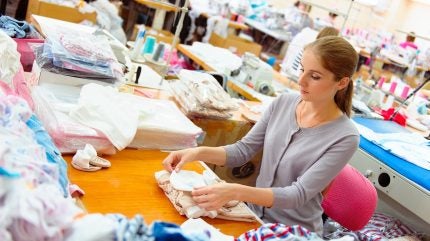
New Look is backing software provider Looper in its development of a tool that will help to better understand the lifecycle of garments.
By aggregating performance measurements from product lifecycle assessments (LCAs), the new Looper solution will enable New Look to more accurately gather data on how eco-friendly its products are throughout their lifecycle. In understanding each product’s environmental impact, from raw material extraction to end of life, New Look hopes to provide customers with more sustainable clothing options, and meet growing demand from environmentally-minded consumers.
Looper has joined Digital Catapult’s Made Smarter Innovation Digital Supply Chain Hub programme to solve industrial challenges posed by their supply chains, together with three other companies.
The participating companies have sponsored specific challenges with technology providers that, if solved, will yield significant benefits for the country’s textiles and hydrogen industries, with each technology provider receiving up to £100,000 in funding.
Among the other companies participating in the challenge is transport management company Loadar which will work to develop a cutting-edge pricing engine to optimise truck fill and cut the carbon footprints of logistics providers, with support from Norfolk-based ShredStation, which specialises in safe and sustainable clothing disposal.
Technology startup MadeBy will look to develop a new solution that will track the flow of materials for different products across a textiles supply chain in a challenge sponsored by QSA Partners. The solutions developed on the programme will be deployed into the Circle-8 Textile Ecosystems testbed, which is one of Digital Catapult’s twenty testbeds located across the country.
The Circle-8 Textile Ecosystems testbed is currently creating and implementing two closely connected manufacturing facilities, with the first focusing on advanced textiles sorting and pre-processing (ATSP), and the second working to establish a reliable, high-volume and cost-effective supply of feedstock for manufacturing. The overall objective of the testbed is to establish a data-driven environment that will support a circular textile supply chain in the UK, as the fashion and textiles industry proves to be crucial for the country’s economic growth.
The project will also support the country’s hydrogen industry, as more companies also recognise the value of renewable energy to cut their carbon footprint and minimise costs. Heuris Energy will be supported by HydroGenus to overcome the financial and operational challenges that come with hydrogen adoption. By standardising data, and modelling the supply chain, Heuris will look to develop a new solution that will solve the fragmented hydrogen supply chain for customers, and be deployed into the Hyrologiq testbed where it will be tested for industrial application.
Tim Lawrence, director of the Digital Supply Chain Hub said: “The UK’s textiles and hydrogen industries are critical to the economy, and the challenges set to be solved on this programme will play a crucial role in helping these sectors to simultaneously improve efficiency and cut cost through sustainable innovation. As sustainability remains front of mind for key stakeholders in these sectors, the tools developed and deployed on this programme will further arm the challenge sponsors with the solutions they need to meet demand from their customers and commercial partners, and will sharpen their competitive edge.”



